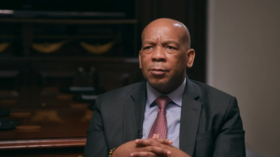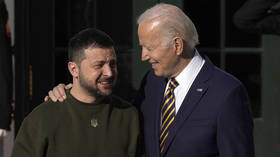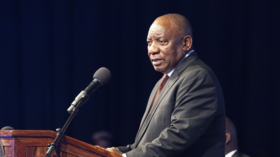BRICS to admit a dozen new members – Belarus

The next wave of BRICS expansion will be announced at the group’s annual summit in the Russian city of Kazan in October, Belarusian Foreign Minister Maxim Ryzhenkov has claimed.
Speaking on the sidelines of the UN General Assembly in New York, Ryzhenkov predicted that BRICS could add at least ten new members, while expressing optimism that his own country's application for membership will be approved.
“The first wave of enlargement, as we all expect – those who have submitted such applications – will take place at the Kazan summit,” Ryzhenkov told RIA Novosti. Russia is “formulating the list of these countries that will be in the first wave of enlargement,” he added.
As the current holder of the BRICS chairmanship, Russia will host the group’s annual summit in Kazan from October 22 to 24. Earlier this month, Belarusian First Deputy Foreign Minister Sergey Lukashevich said his country is in the first pool of BRICS candidates, along with Algeria, Bangladesh, Bahrain, Bolivia, Venezuela, Vietnam, Cuba, Honduras, Indonesia, Kazakhstan, Kuwait, Morocco, Nigeria, Palestine, Senegal, and Thailand.
Several other countries, including Türkiye, Zimbabwe, and Burkina Faso, have also shared their intent to join. Founded in 2006 by Russia, China, India, and Brazil, the organization accepted South Africa as a member in 2011. Earlier this year, it expanded to welcome four new member states – Iran, Egypt, Ethiopia and the UAE.
So far, at least 34 countries have expressed interest in joining, Russian President Vladimir Putin stated at a senior BRICS meeting earlier in September.
BRICS member nations are also jointly developing a payment and settlement framework for trading within the group, Putin said last week. This will allow members to “create conditions for the effective and independent servicing of all foreign trade,” he added.
The expansion of BRICS should be “encouraged,” Julie Kozack, a spokeswoman for the International Monetary Fund, said in September, adding that the growth of the group could be beneficial globally.
BRICS countries currently comprise around 46% of the world’s population. Member states’ economies account for over 36% of global GDP, as well as more than a third of the world’s GDP based on purchasing power parity, according to estimates by global financial institutions.














